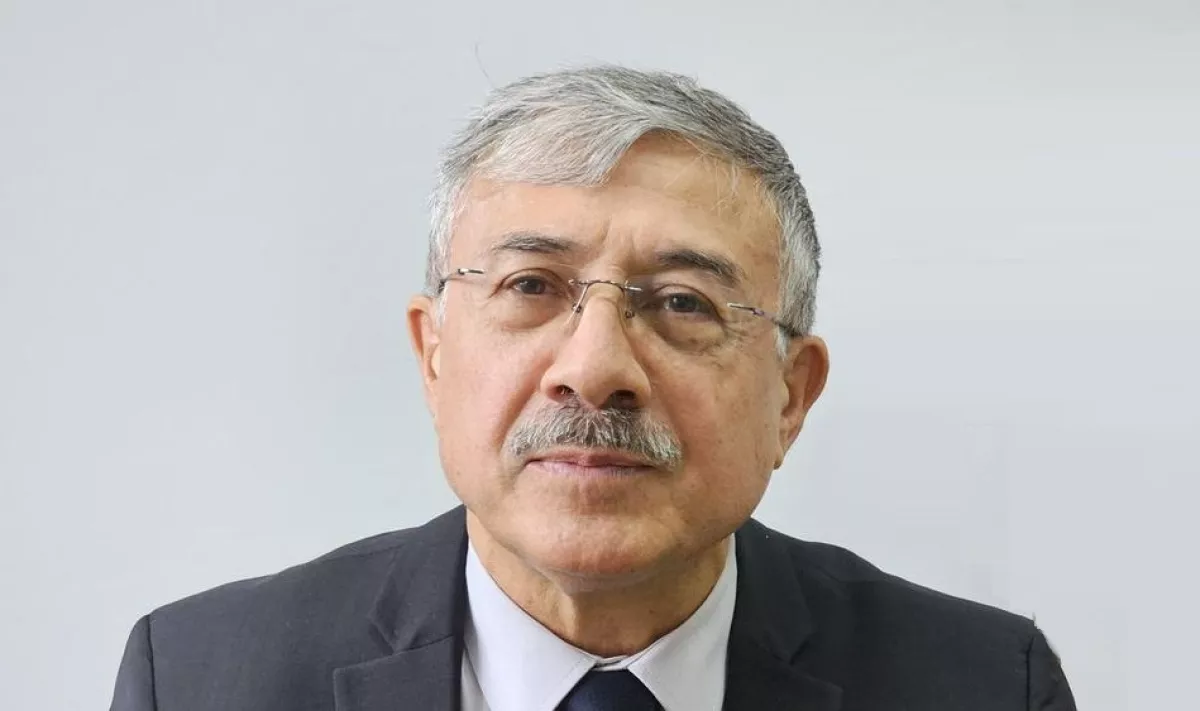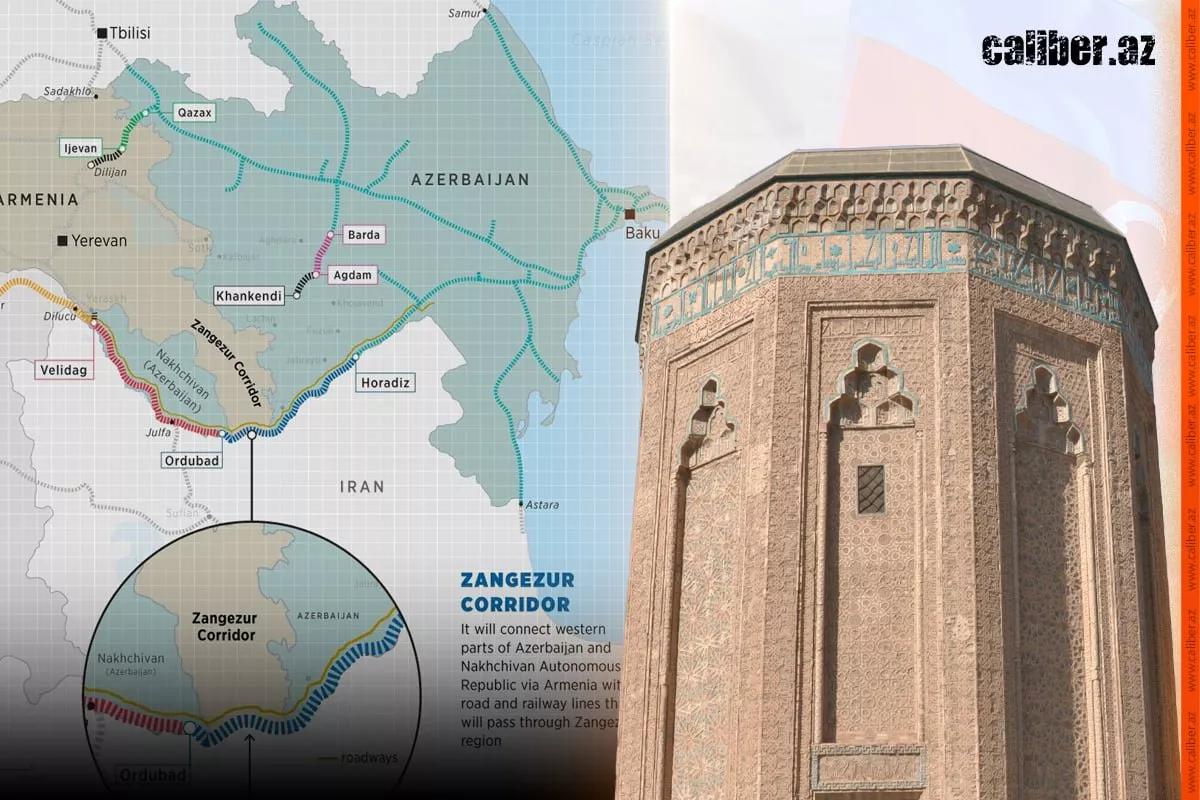Zangezur Corridor: Gateway to regional trade and connectivity Experts discuss prospects and benefits
Discussions in Türkiye on the urgent launch of the Zangezur Corridor are intensifying. At the National Security Council meeting chaired by President Recep Tayyip Erdoğan, the process of Ankara–Yerevan normalisation and the importance of transport connectivity between mainland Azerbaijan and its Nakhchivan Autonomous Republic were underlined.
Turkish Transport and Infrastructure Minister Abdulkadir Uraloğlu also highlighted the corridor’s regional benefits at the 8th Meeting of Ministers of Transport of the Organisation of Turkic States (OTS), stressing that it will secure direct land links between Türkiye and Azerbaijan, strengthening unity across the Turkic world.
Meanwhile, Armenian Prime Minister Nikol Pashinyan touched upon regional transport communications in his address to the 80th UN General Assembly session.
Caliber.Az spoke with Azerbaijani and Turkish experts on the prospects and benefits of the Zangezur Corridor.

According to Turkish political analyst Kerim Has, renewed focus on the Zangezur Corridor in Türkiye has been influenced by the recent meeting between President Donald Trump and President Recep Tayyip Erdoğan.
“The meeting with the US president and the agreements reached mark a major breakthrough for Türkiye, despite the many nuances, disputes, and differing perspectives in Turkish–American relations. For example, the dilemma over F-35 supplies and the Russian S-400 system, as well as the unresolved issue of the F-16s. In my view, both Türkiye and the United States have long had an interest in the Zangezur Corridor, with each side working out its own strategy for potential involvement in this global project.
We recall that a few months ago, a draft proposal circulated in the media suggesting that a Turkish company could act as the technical operator of the Zangezur Corridor. However, it was clear that Armenia would hardly agree to such an option, something Yerevan quickly made explicit. At the time, the search was on for the most optimal operator acceptable to both Baku and Yerevan, and it was quite logical that the United States, which was then showing the greatest interest in the project, emerged as the likely candidate. This suggested a certain consensus between Türkiye and the US.
For instance, US President’s Special Representative Louis Bono openly stated that on South Caucasus issues, he often consults with Turkish intelligence chief İbrahim Kalın and Foreign Minister Hakan Fidan. Azerbaijan, of course, has been an active participant in the process with its own position and role as the project’s moderator. Yet the fact remains that a close dialogue has emerged between Ankara and Washington, something that until recently, during the Biden administration, had been largely absent as Washington showed little genuine interest in the South Caucasus,” the political analyst emphasised.
In Has’s assessment, Türkiye’s drive to accelerate the opening of the corridor is rooted in its awareness that, while Russia remains tied down in Ukraine, its involvement in the South Caucasus is largely nominal. However, once peace is reached between Moscow and Kyiv, Russia would immediately regain the freedom to act in the region.
“Not long ago, Hakan Fidan openly stated that Türkiye expects a peace treaty between Baku and Yerevan to be signed in the first half of 2026. I believe this will happen somewhat later, since elections and a constitutional referendum are scheduled in Armenia. Nevertheless, it is quite clear that Türkiye is deeply invested in this matter, recognising that the signing of a peace treaty would allow it to fully normalise relations with Armenia and seize the moment, while there is still a certain vacuum of influence from other major players in the South Caucasus,” Has concluded.

Meanwhile, Azerbaijani political analyst Chingiz Mammadov believes that the current wave of discussions in Türkiye about the importance of the Zangezur Corridor has been partly triggered by Pashinyan’s speech at the UN General Assembly.
“The Armenian prime minister’s speech can be divided into several logical segments. The first is his desire to legitimise Armenia’s current territorial boundaries in the eyes of the international community. It is no coincidence that Pashinyan addressed this issue three times during his relatively brief speech.
The second segment reflects his aim to pull Armenia out of the deadlock caused by its aggression against Azerbaijan. This is why he emphasised twice that Armenia is establishing diplomatic relations with Saudi Arabia and Pakistan, and highlighted efforts to improve relations with Türkiye and open channels of communication with the country. This is far from accidental, as the Turkish stance will largely determine whether Armenia can escape its current economic and communications impasse.
The third segment directly concerns the Zangezur Corridor,” the political analyst noted.

According to the expert, when all three segments are considered together, it gives the impression that Pashinyan—whether on his own initiative or under the influence of the Armenian opposition and diaspora—though constantly speaking about peace, is primarily focused on getting his country out of its deadlock. He expressed similar positions at the Parliamentary Assembly of the Council of Europe and, more broadly, in his recent interviews and responses to questions over the past several days.
“The Azerbaijani position on the ‘Trump Route’ or TRIPP is as follows: the United States will provide technical work and support, but will not exercise direct control. Azerbaijani cargo and citizens will have unhindered passage through this section of the route. The President of Azerbaijan has repeatedly stated that Azerbaijani citizens should not encounter Armenian border guards—and this is very important. However, it seems that Pashinyan is trying to rewrite the rules in his own way and ensure that Armenia exercises full control over the transit. This is precisely why he insists on calling it TRIPP rather than the Zangezur Corridor, as he envisions this transit as a road controlled by Armenia. That is why the term ‘Zangezur Corridor’ bothers him. If the Armenian prime minister dislikes the term ‘Zangezur Corridor,’ he could instead use the expression ‘Trump Route (TRIPP) through the Zangezur Corridor,’” Mammadov explained.








